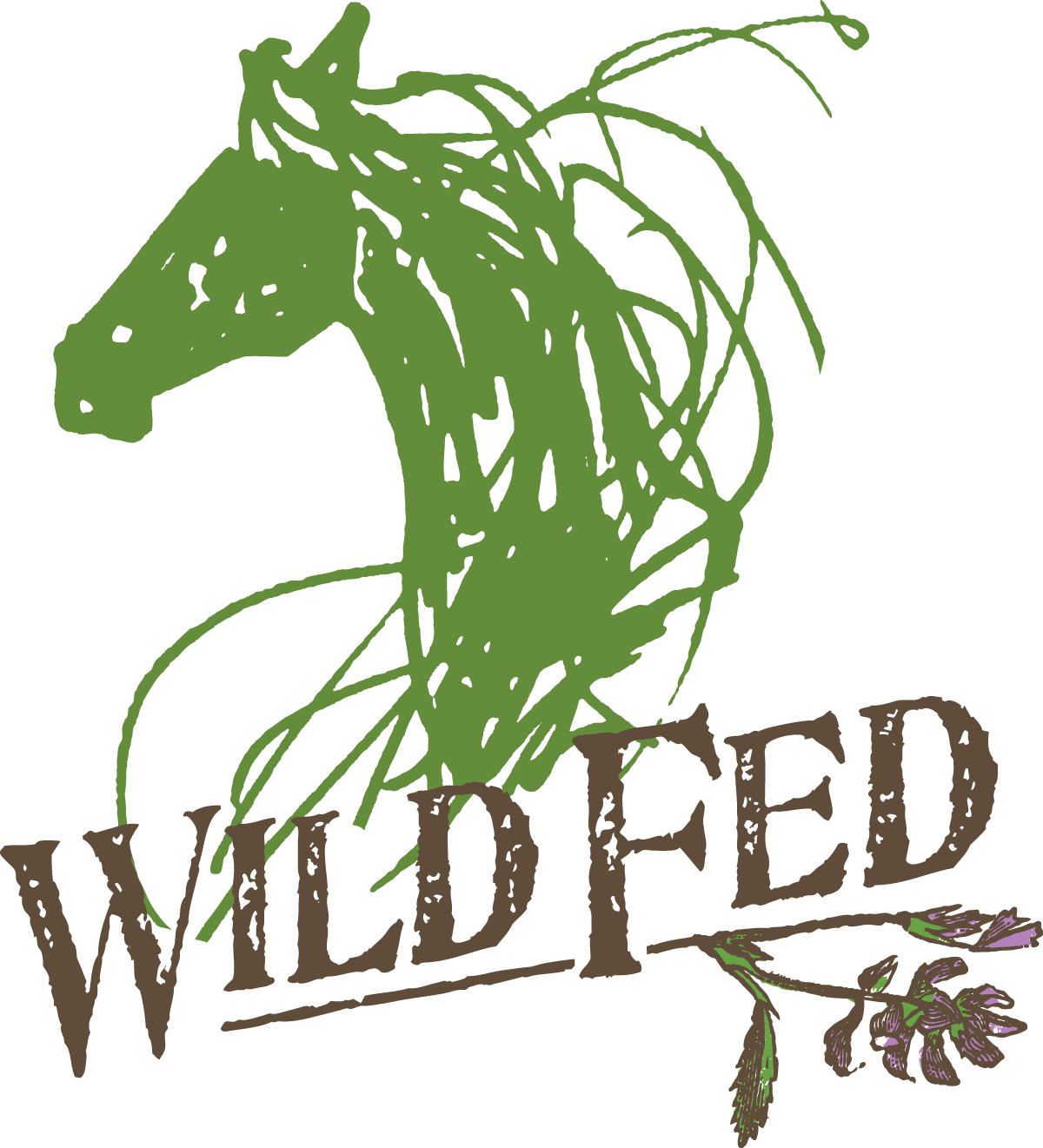
What’s Really in Your Horse’s Feed? The Truth About Synthetic vs. Whole Food Nutrients
Is Your Horse Eating Petroleum-Derived Vitamins?
At Wild Fed, we believe that what goes into your horse's body directly affects their vitality, resilience, and long-term health. With so many options on the market, choosing horse feed and supplements can be overwhelming. One core value we stand by is using 100% non-GMO ingredients in our horse feed and 100% organic herbs in our supplements—and here’s why that matters more than ever.
What Are Synthetic Nutrients… and Where Do They Come From?
Synthetic nutrients are isolated chemical compounds created in laboratories to mimic the structure of natural vitamins and minerals. But "mimic" is the key word—they're not the same, and your horse's body knows the difference.
Common Synthetic Nutrients in Conventional Horse Feed
-
Vitamin E – DL-alpha-tocopherol acetate
(Made from petroleum derivatives and industrial chemicals like trimethylhydroquinone and isophytol) -
Vitamin A – Retinyl acetate or palmitate
(Produced via chemical synthesis from acetylene gas and formaldehyde) -
Vitamin D3 – Cholecalciferol
(Synthesized by irradiating lanolin (from sheep wool) with UV light) -
B12 (Cyanocobalamin) – Created using fermentation with genetically modified bacteria, often with cyanide as a stabilizer
-
Folate (Folic Acid) – Derived from petroleum-based p-aminobenzoic acid and formaldehyde
-
Biotin – Made from fossil fuel derivatives such as fumaric acid
-
Magnesium oxide – Extracted from calcined magnesite, a mineral product of industrial waste
-
Zinc sulfate – Formed by treating zinc ore with sulfuric acid
-
Copper sulfate – Produced by reacting copper metal with sulfuric acid—often a byproduct of mining and electroplating
-
Phosphorus – Comes from phosphate rock processed with sulfuric acid to produce superphosphate
-
Potassium chloride – Mined from potash ore, then chemically purified
-
Selenium (sodium selenite) – Made from selenium dioxide dissolved in sodium hydroxide, a highly reactive base
-
Manganese sulfate – Derived from manganese dioxide ore, treated with sulfuric acid
-
Cobalt carbonate – Created from refined cobalt metal waste, often sourced from industrial byproducts
These synthetic forms are often added as sulfates or oxides—cheap, easy to mass-produce, but poorly absorbed by the body and potentially irritating to the gut. Sulfate forms, like zinc sulfate or copper sulfate, can disrupt the gut lining and are more likely to cause mineral imbalances or oxidative stress in both horses and humans.
How Are Whole Food & Organic Nutrients Different?
Whole food nutrients are extracted or concentrated from real food sources—plants, herbs, seaweeds, and yeasts—where vitamins and minerals exist in complex, bioavailable forms your horse’s body can actually use.
Organic nutrients go even further. They are:
-
Grown without chemical fertilizers or herbicides
-
Bound to natural carriers like amino acids or yeast proteins, often through fermentation
-
Free from residues and heavy metals often found in synthetic forms
These nutrients include the full spectrum of cofactors, enzymes, and phytochemicals that nature intended to go along with them. That’s why they don’t just look better on a label—they actually work better in the body.
What We Do Differently at Wild Fed
We designed our feed to reflect the wild-type diet your horse would naturally seek: rich in forage, low in sugar, and built on real food. That’s why our feed contains:
✅ No chemical preservatives
✅ No corn, soy, or added sugars
We rely on herbs, seeds, whole plants, and natural carriers to provide a full spectrum of nutrients, just as nature intended.
We do include just two added minerals—zinc and selenium—but with intention and care:
These minerals are known to be deficient in the soils of Southern Oregon, where our hay is grown. To honor the whole horse, we add them in organic-certified forms:
-
Zinc proteinate – A chelated form bonded with amino acids, easier on the stomach and better absorbed
-
Selenium yeast – Grown through fermentation, providing selenium in a natural, safe, and bioavailable form (like selenomethionine)
We never use sodium selenite, zinc sulfate, or other synthetic versions that may build up in the body or cause harm over time.
Why it Matters?
Feeding your horse is more than a routine—it's an act of care, connection, and responsibility. Every bite is either helping or hindering their long-term health.
At Wild Fed, we’re committed to giving your horse the kind of nutrition that respects their body’s wisdom. We choose ingredients that support cellular health, protect the gut, and reduce toxic load—not contribute to it.
Because when you feed whole, you feed whole-istically.
With gratitude,
The Wild Fed Team
Rooted in Nature | Informed by Science | Made with Heart





